Adverb Clauses Worksheets 7th Grade
Adverb clauses are an essential aspect of language arts education for 7th-grade students. Understanding these clauses helps students to effectively express relationships between actions, time, condition, contrast, and manner within their writing. Worksheets can be a valuable tool for reinforcing and practicing adverb clauses, providing students with opportunities to apply their knowledge and enhance their skills in this grammatical area.
Table of Images 👆
More 7th Grade Worksheets
7th Grade Vocabulary WorksheetsPre-Algebra 7th Grade Math Worksheets
7th Grade Math Worksheets Proportions
Complex Sentence Worksheets 7th Grade
Geometry Angles Worksheet 7th Grade Math
What is an adverb clause?
An adverb clause is a group of words that function as an adverb and contains a subject and a verb. It usually answers questions such as how, when, where, why, or to what extent an action takes place in a sentence. Adverb clauses can modify verbs, adjectives, and other adverbs to provide more details about when, where, how, why, or to what extent an action happened.
How does an adverb clause modify a verb?
An adverb clause modifies a verb by providing information about when, where, why, or how the action of the verb is taking place. It functions like an adverb in a sentence, adding detail or specifying the circumstances under which the verb's action occurs. This additional information helps to give context and clarity to the action being described in the sentence.
What are some common subordinating conjunctions used in adverb clauses?
Some common subordinating conjunctions used in adverb clauses are: after, although, as, as long as, as soon as, as though, because, before, even though, if, in order that, lest, now that, once, provided that, since, so that, than, though, unless, until, when, whenever, where, whereas, wherever, while.
Can an adverb clause modify an adjective or another adverb?
Yes, an adverb clause can modify an adjective or another adverb. Adverb clauses provide more information about when, where, how, why, or to what extent something happens, and they can modify adjectives or other adverbs to provide further details or clarification about the action or state described.
How can an adverb clause indicate time?
An adverb clause can indicate time by providing information about when an action takes place in relation to another action. This is typically achieved by using subordinating conjunctions such as "when," "while," "as soon as," "before," "after," "since," "until," and "whenever" to connect the adverb clause to the main clause. The adverb clause then specifies the time frame or duration of the action, helping to clarify the timing of events in the sentence.
How can an adverb clause indicate cause and effect?
An adverb clause can indicate cause and effect by providing the reason or result for the action described in the main clause. For example, "Because it was raining, I decided to stay indoors" shows the cause-effect relationship where the adverb clause "Because it was raining" explains the reason (cause) for the action in the main clause "I decided to stay indoors" (effect).
Can an adverb clause answer the question "why"?
Yes, an adverb clause can answer the question "why" by providing information about the reason or cause of an action or event. For example, in the sentence "He left early because he had an appointment," the adverb clause "because he had an appointment" answers the question "why" by explaining the reason for why he left early.
Can an adverb clause answer the question "where"?
Yes, an adverb clause can answer the question "where" by providing information about the location or place where an action is taking place. For example, in the sentence "She went to the park where she likes to relax," the adverb clause "where she likes to relax" answers the question of where she went.
Can an adverb clause answer the question "how"?
Yes, an adverb clause can answer the question "how" by providing information on the manner or method in which an action is carried out. For example, in the sentence "She sang as if she were a professional singer," the adverb clause "as if she were a professional singer" answers the question of how she sang by describing the manner in which she performed.
Can an adverb clause indicate contrast or comparison?
Yes, an adverb clause can indicate contrast or comparison by providing information that contrasts or compares the actions or situations described in the main clause. This can help to clarify relationships between different parts of a sentence and enhance the overall meaning and flow of the writing.
Have something to share?
Who is Worksheeto?
At Worksheeto, we are committed to delivering an extensive and varied portfolio of superior quality worksheets, designed to address the educational demands of students, educators, and parents.

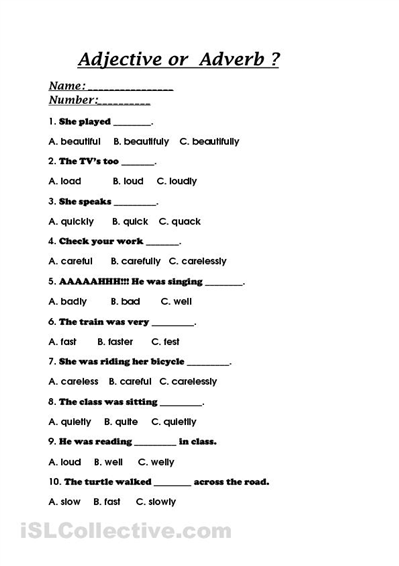



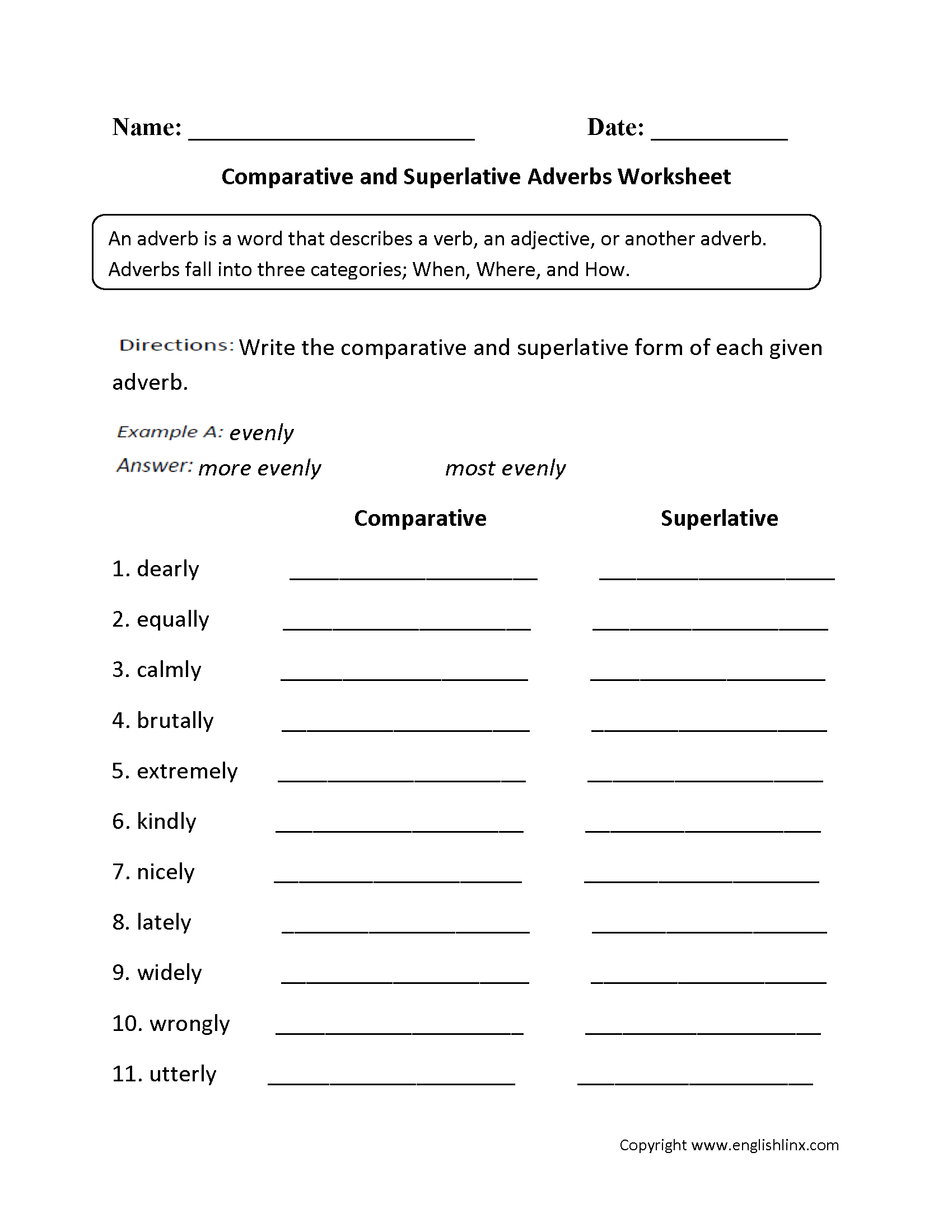
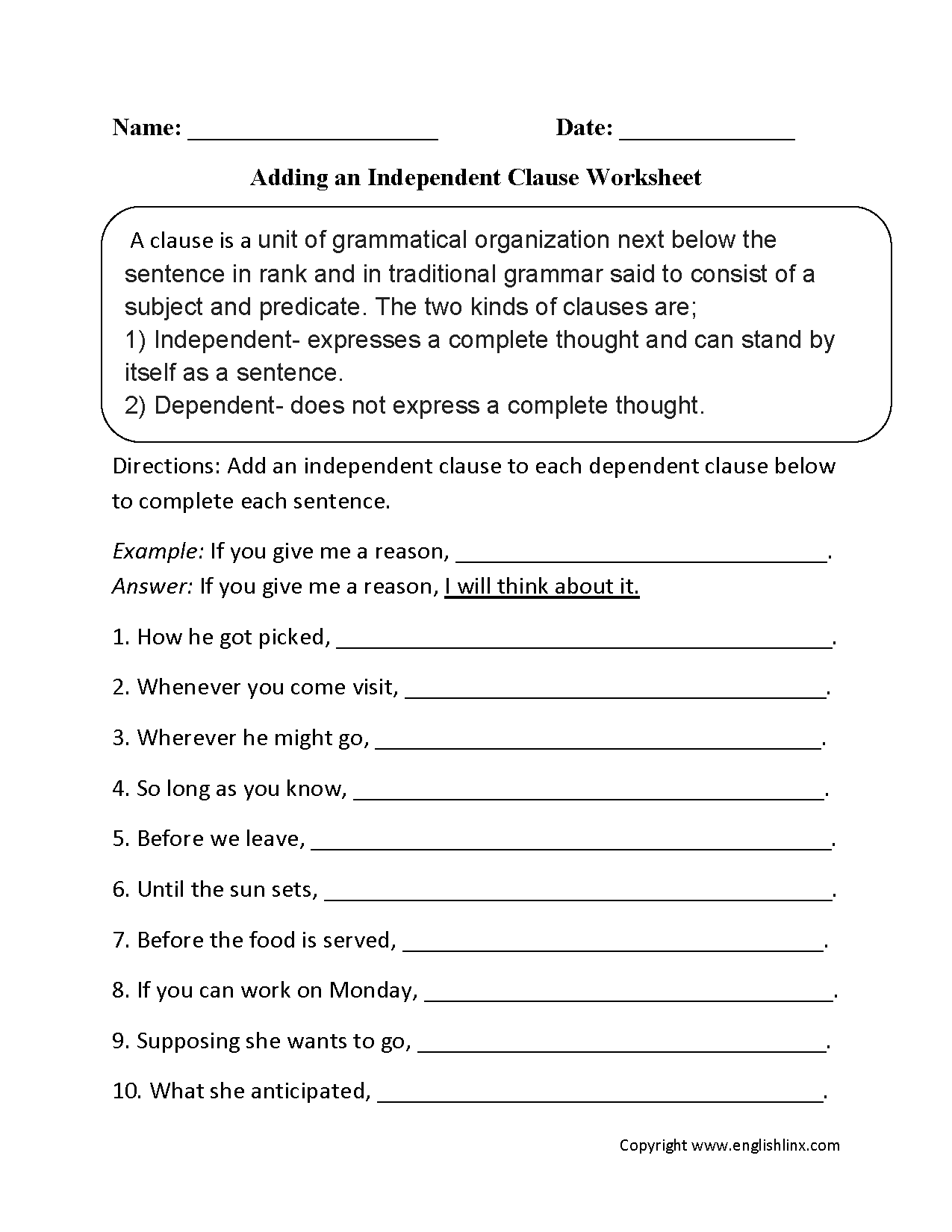
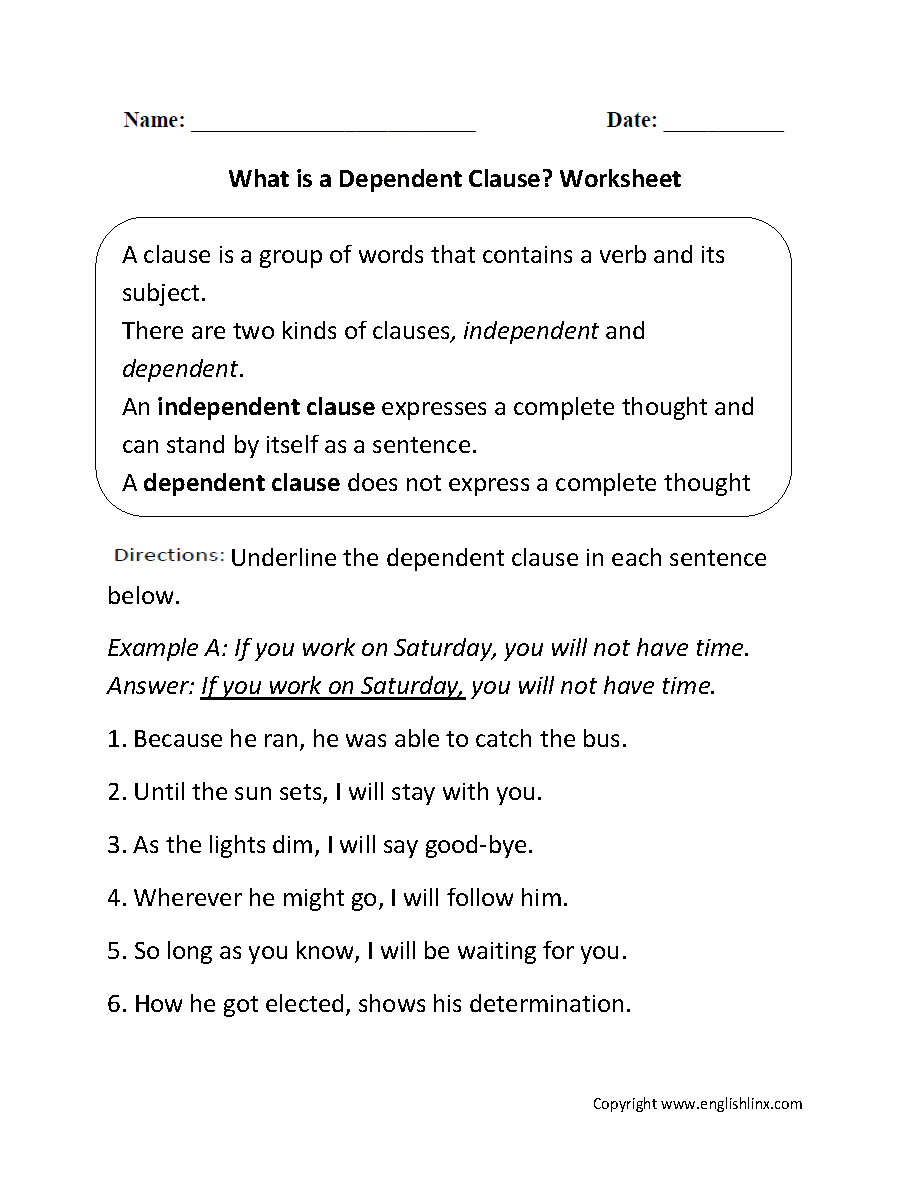
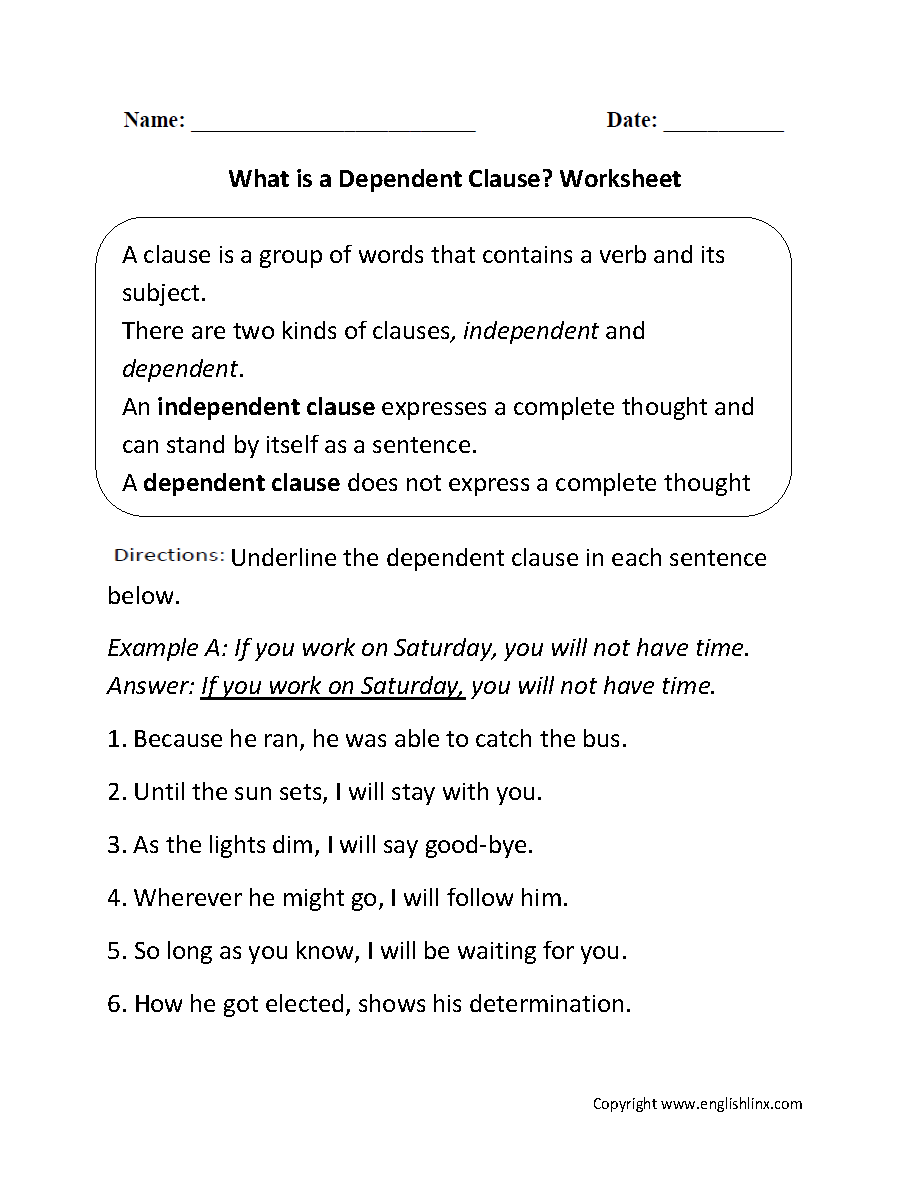
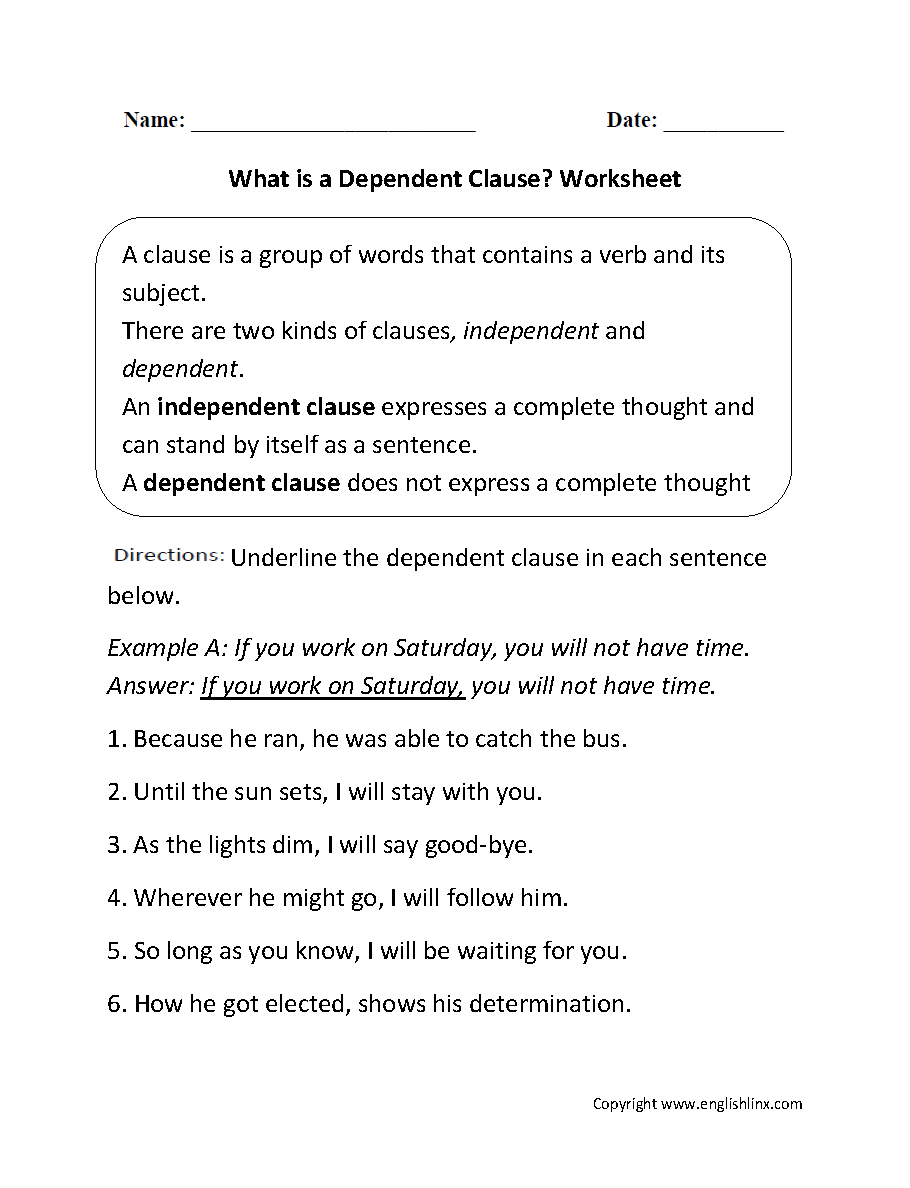
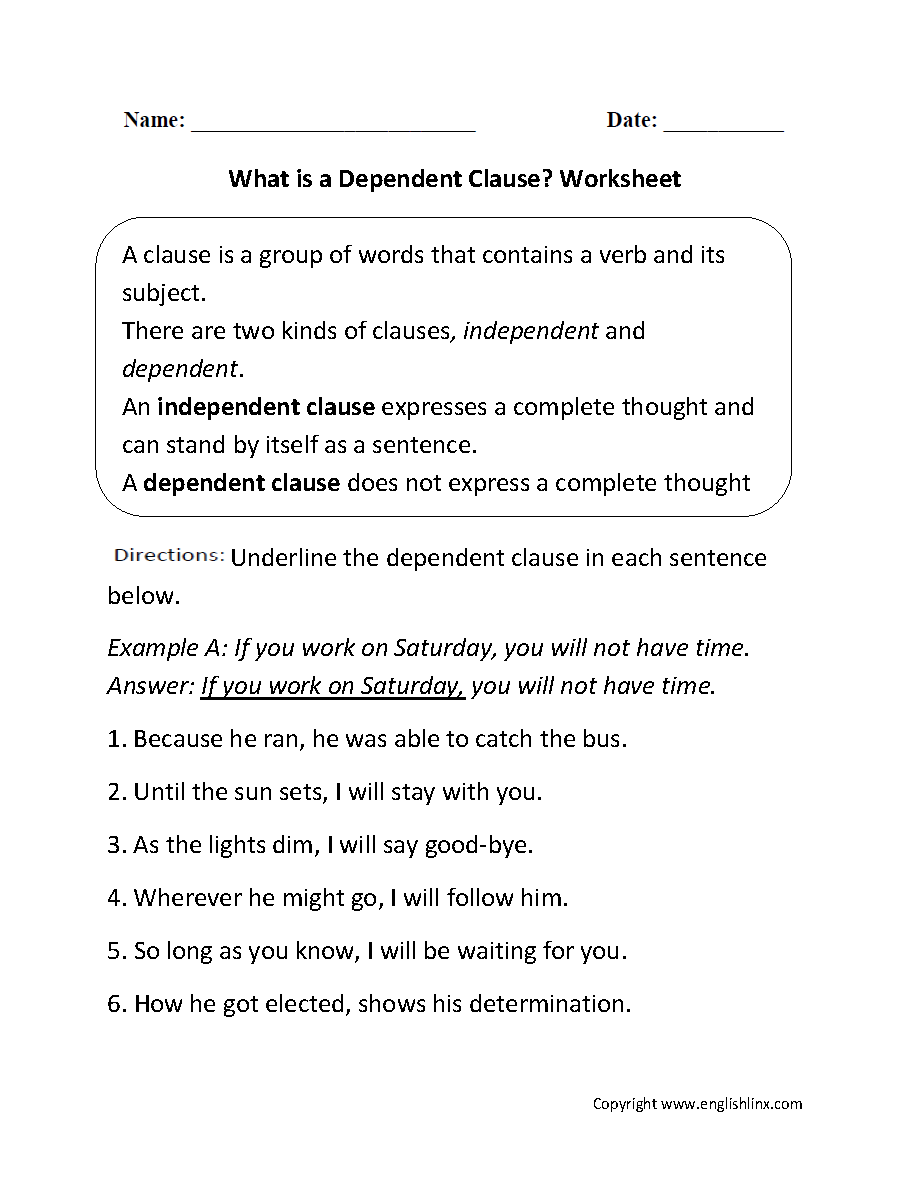
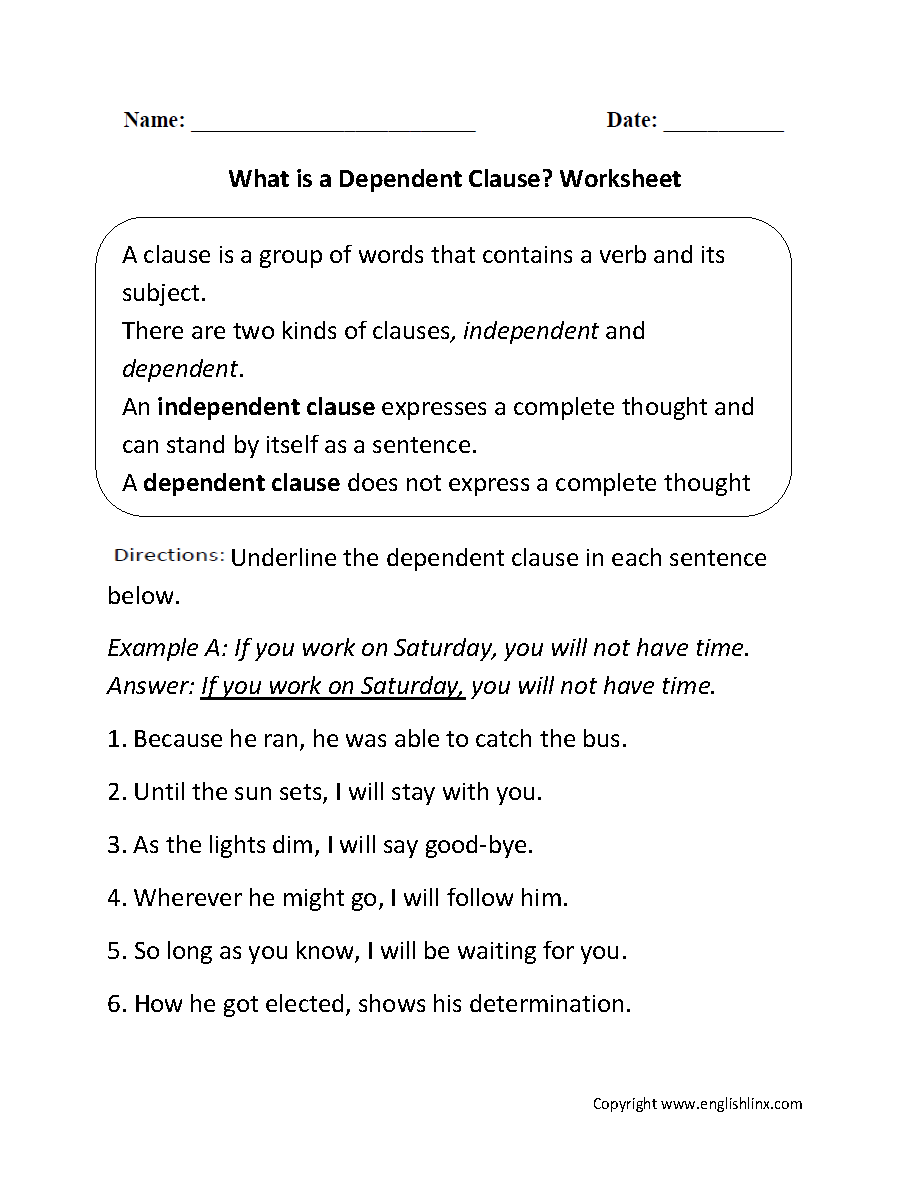
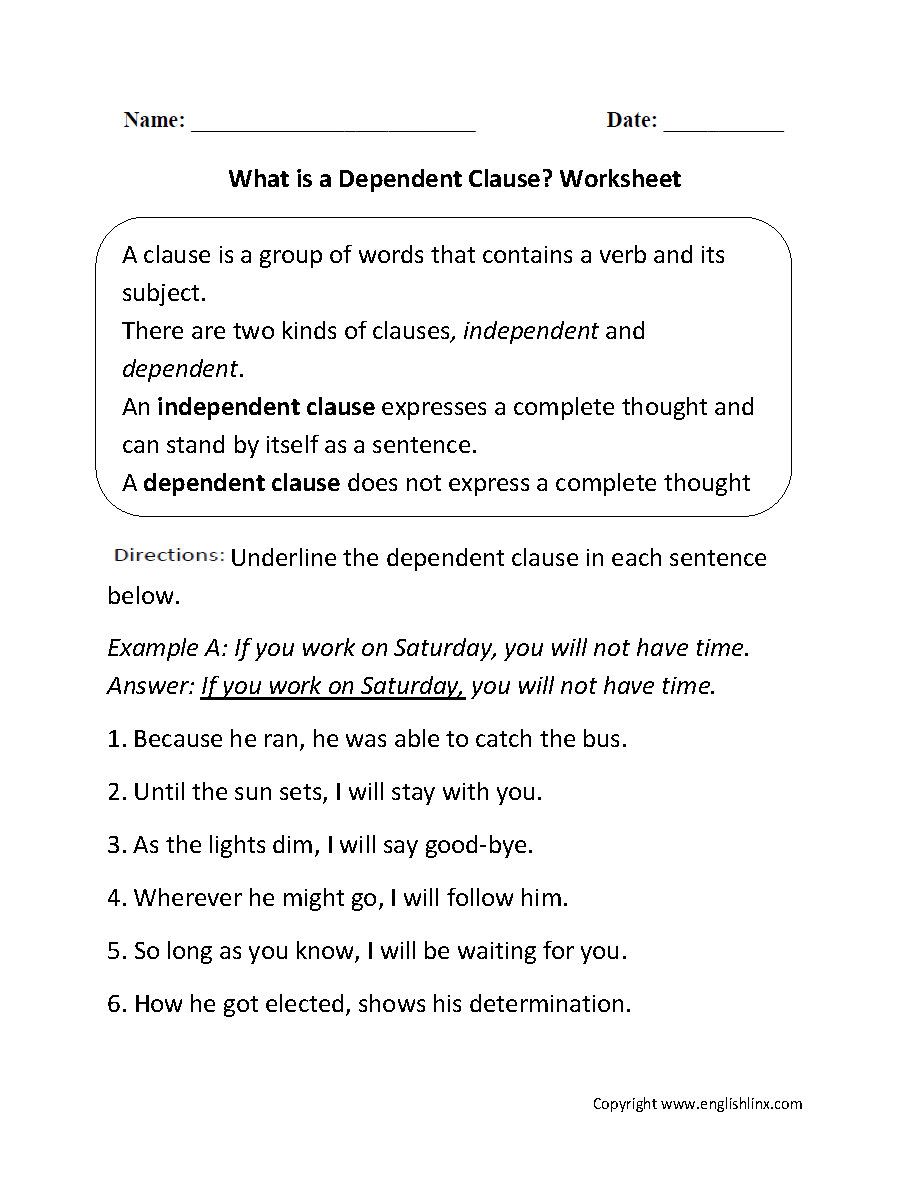
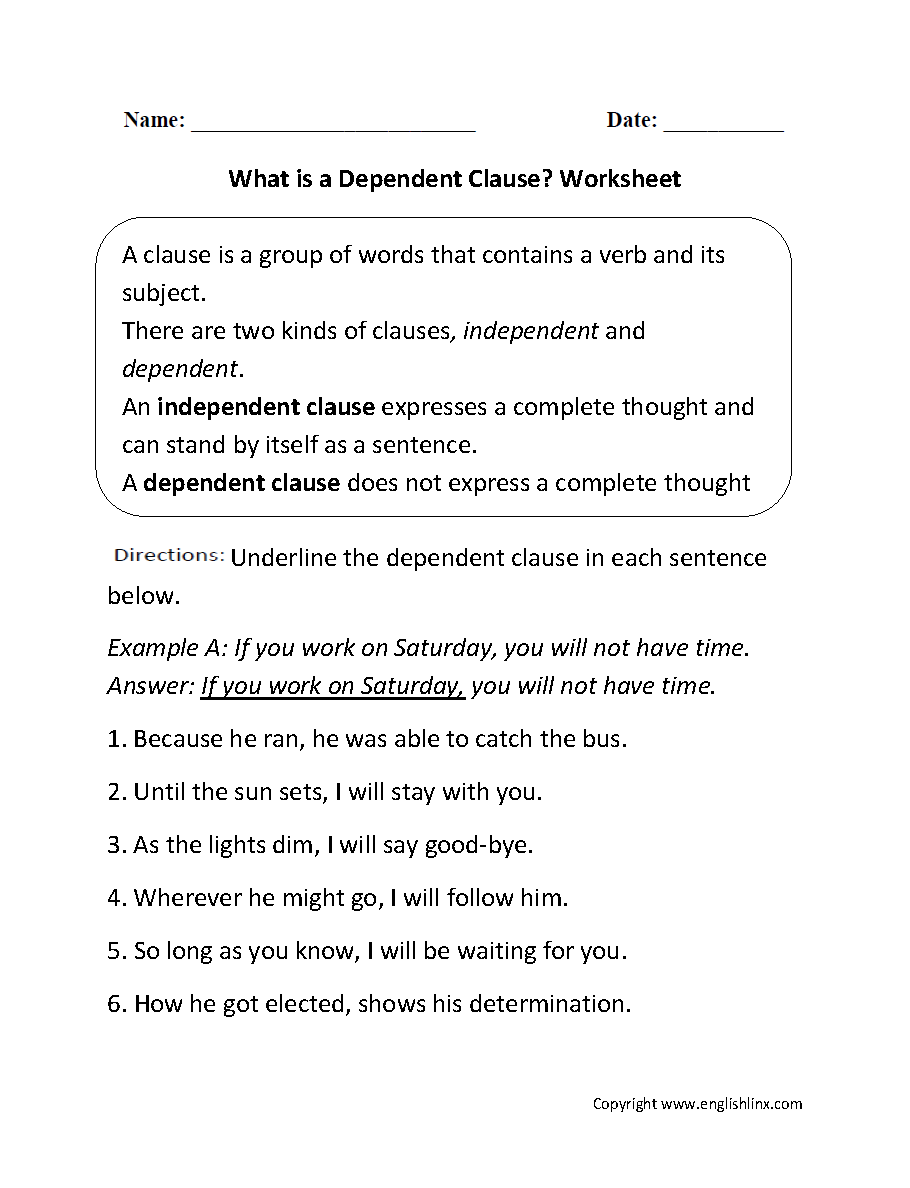
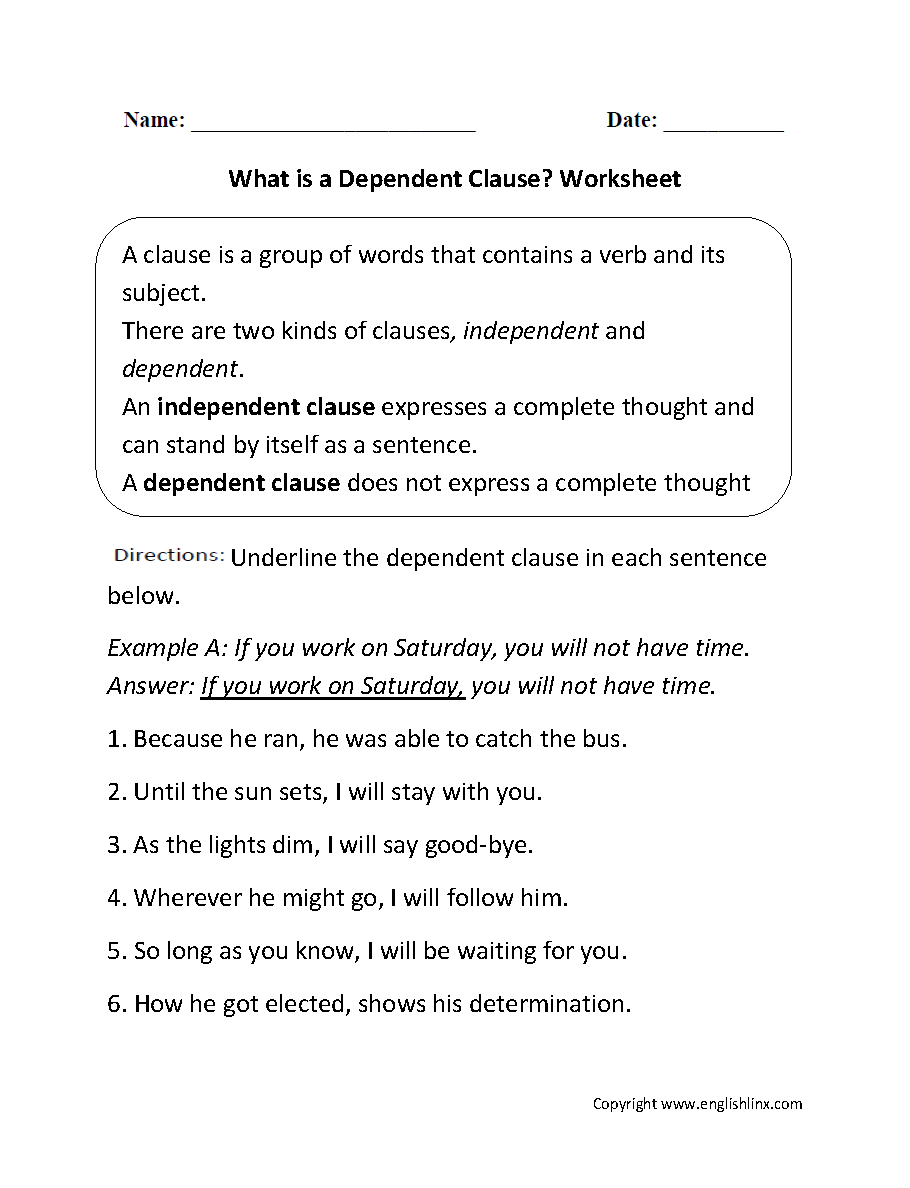
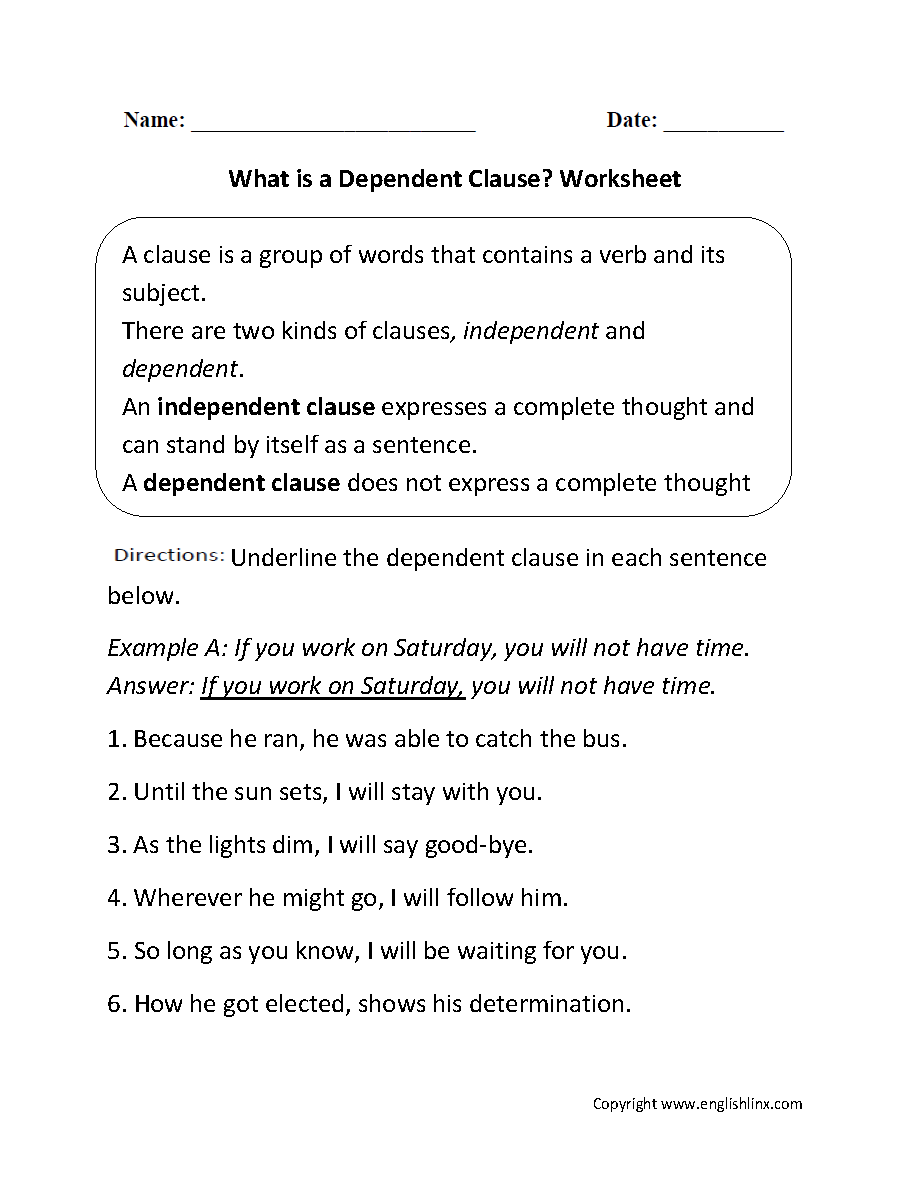
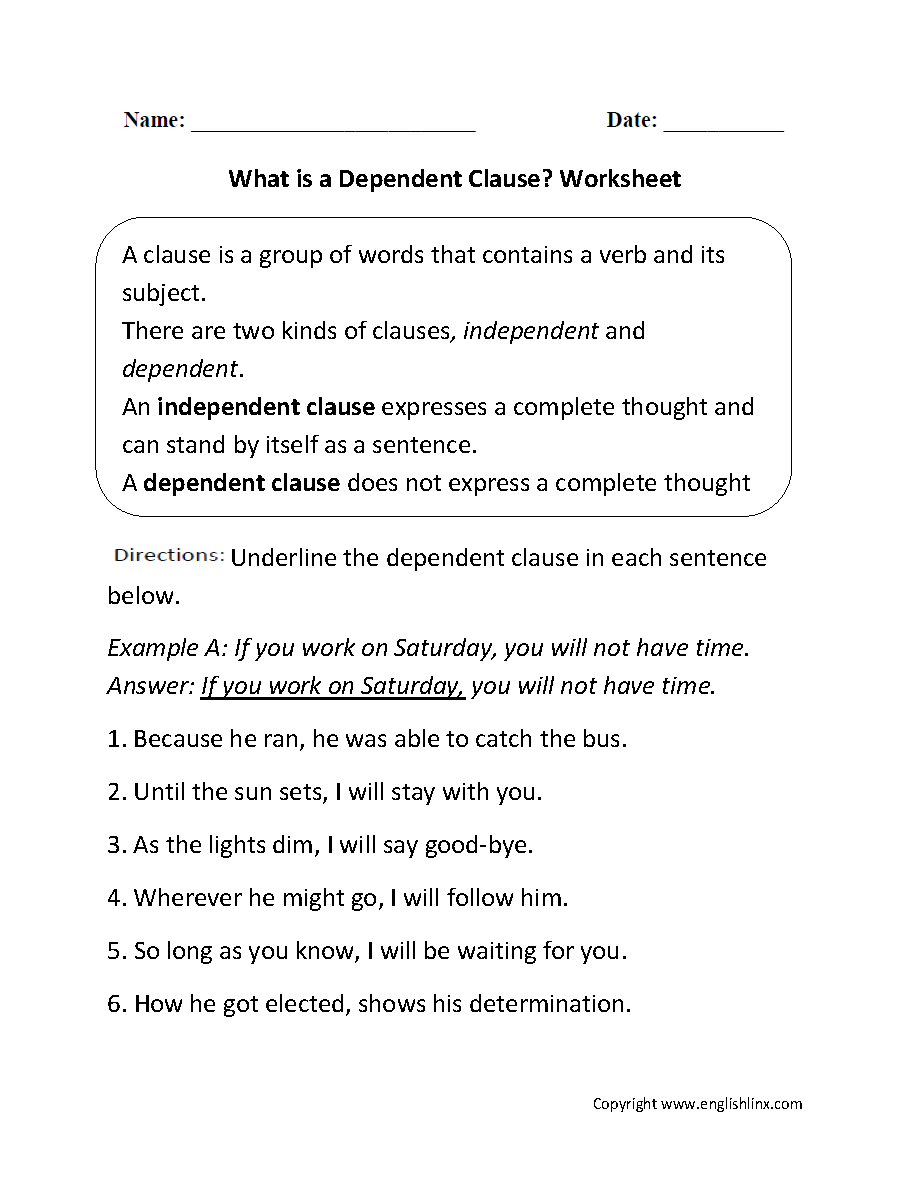
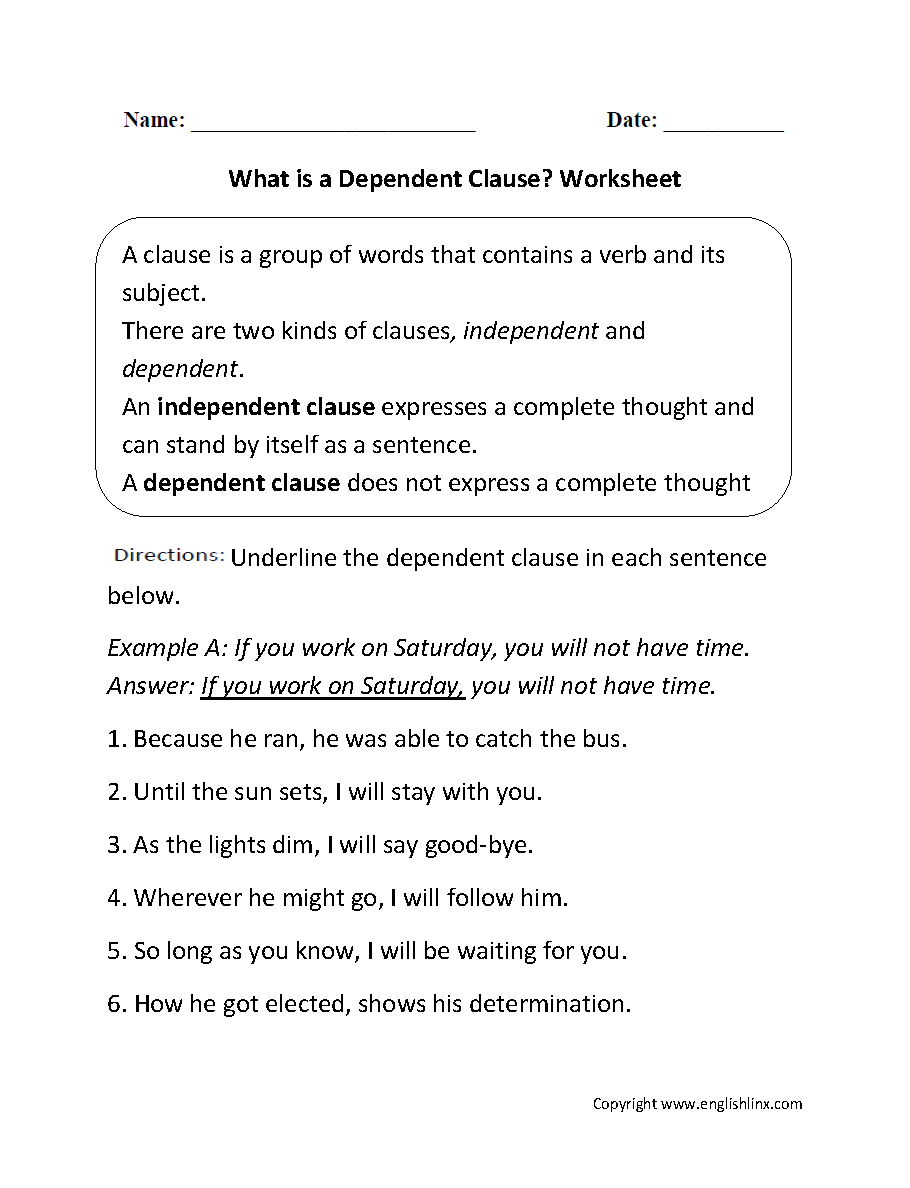

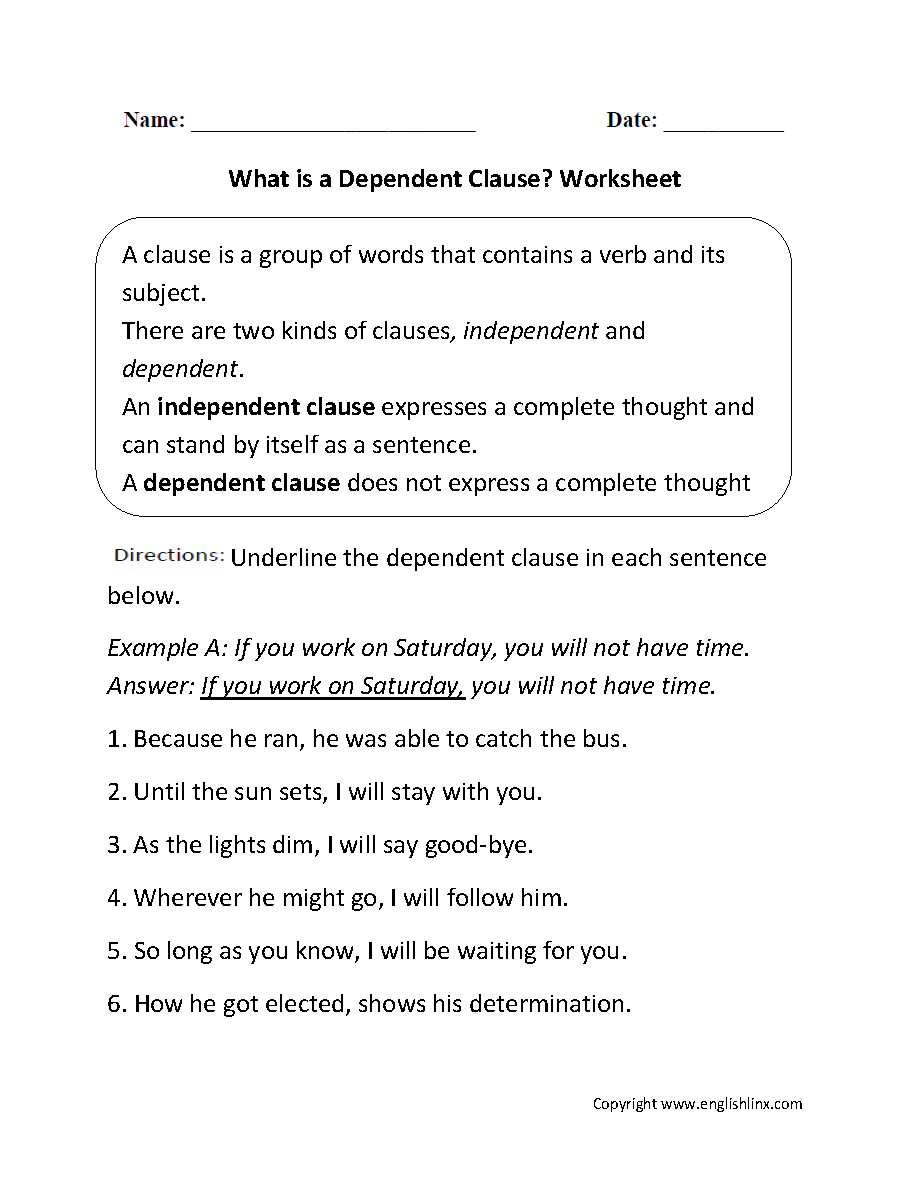
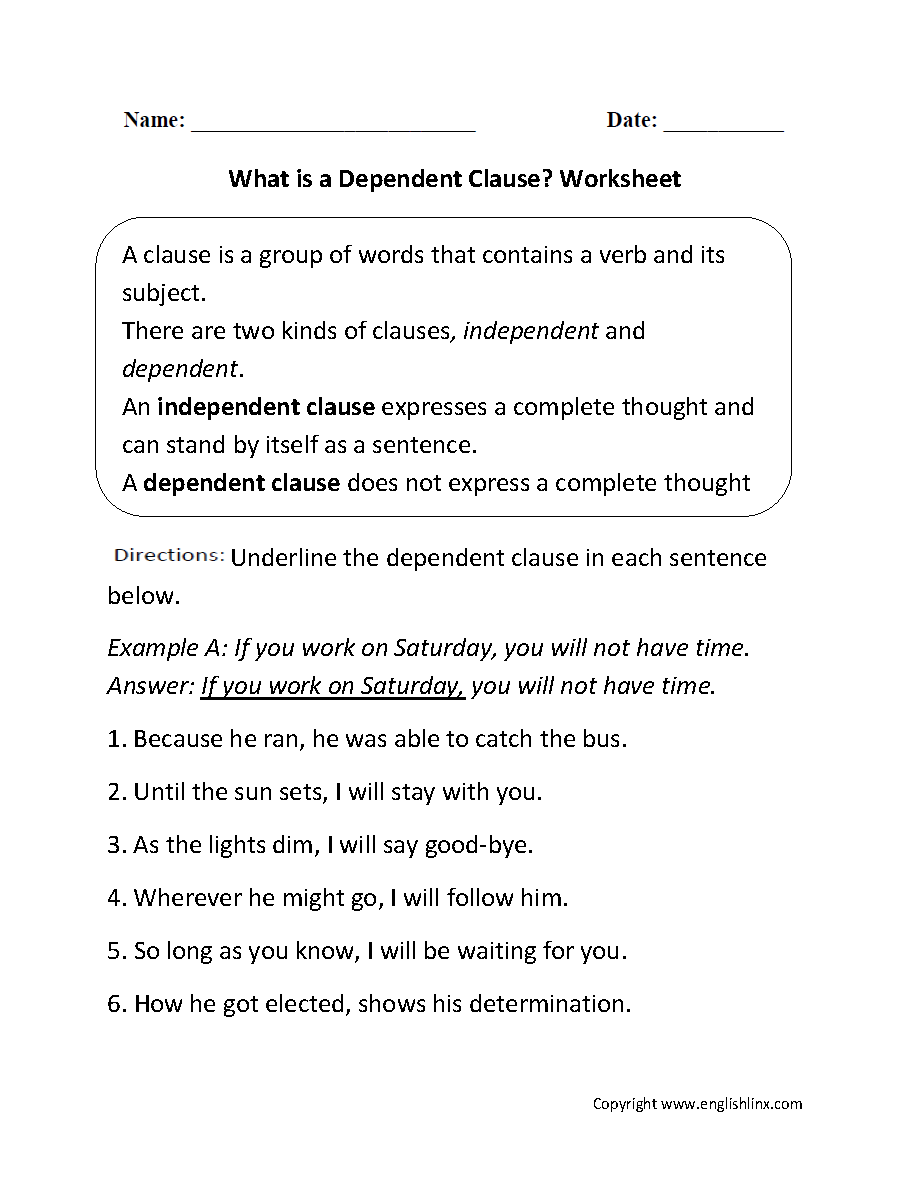
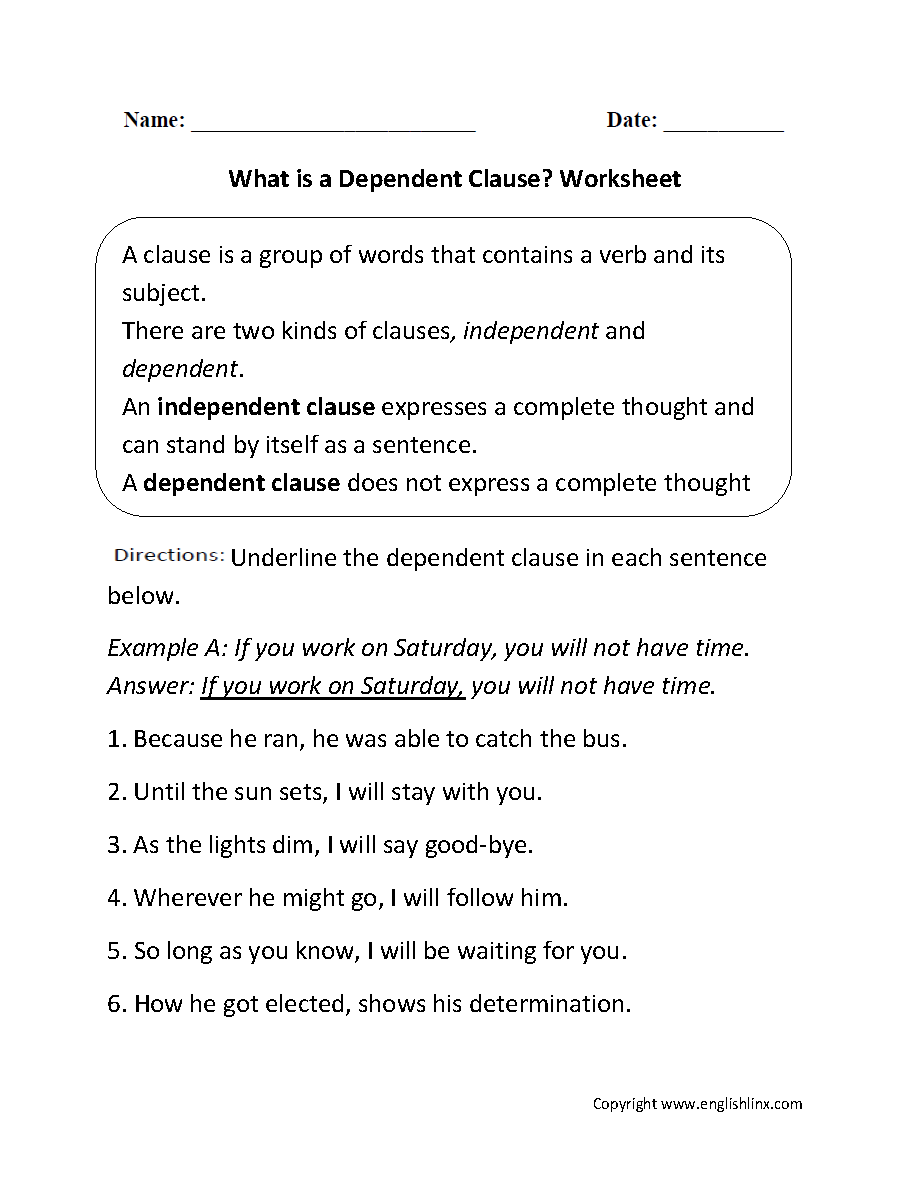
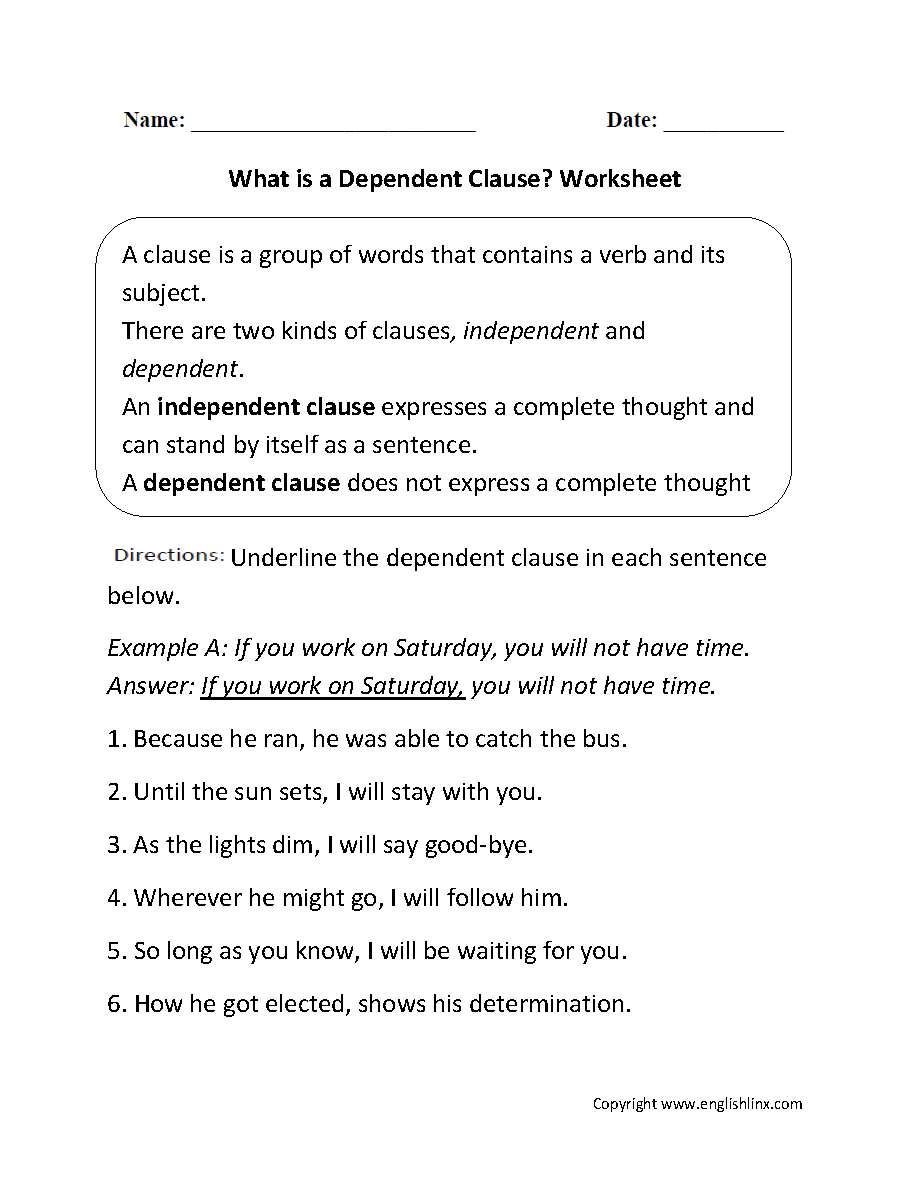
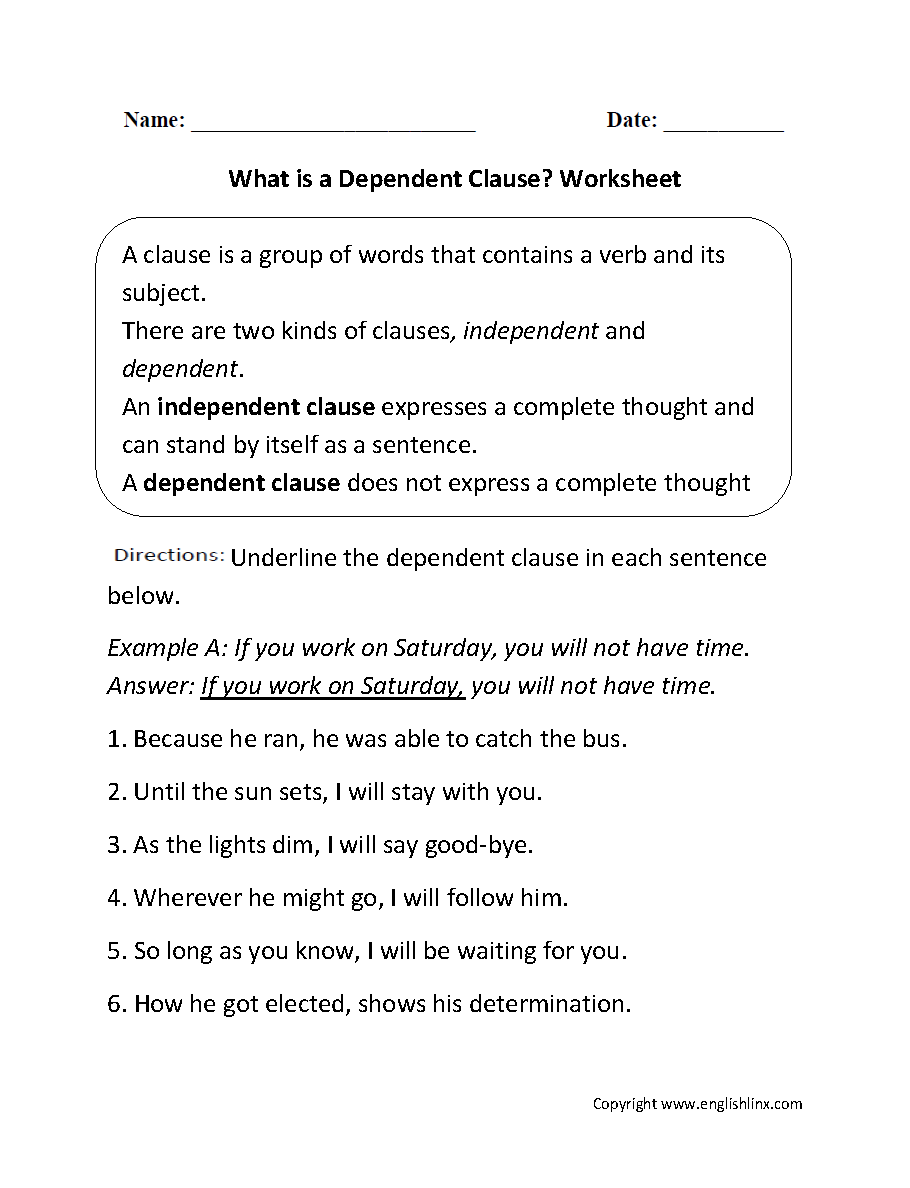








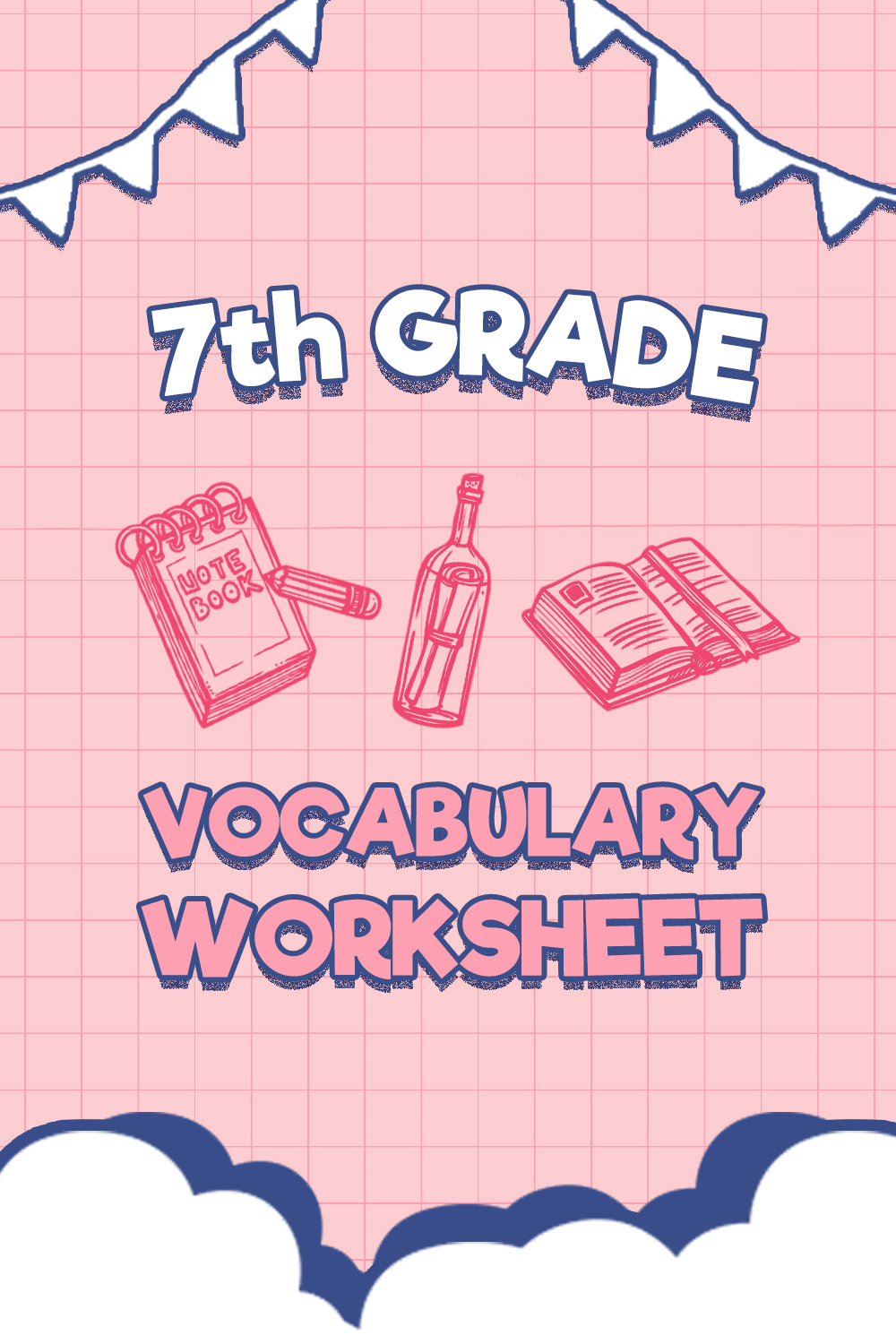
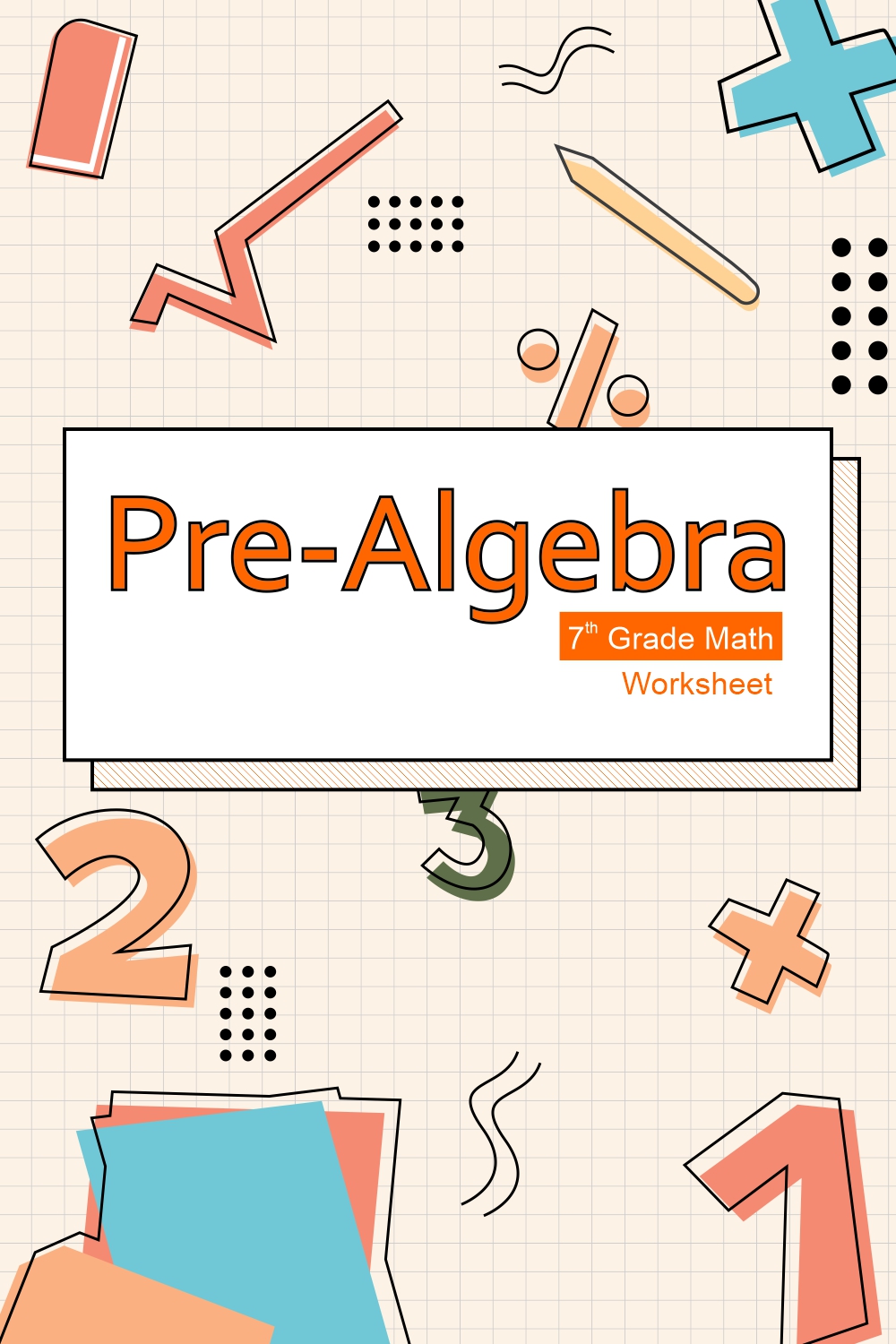
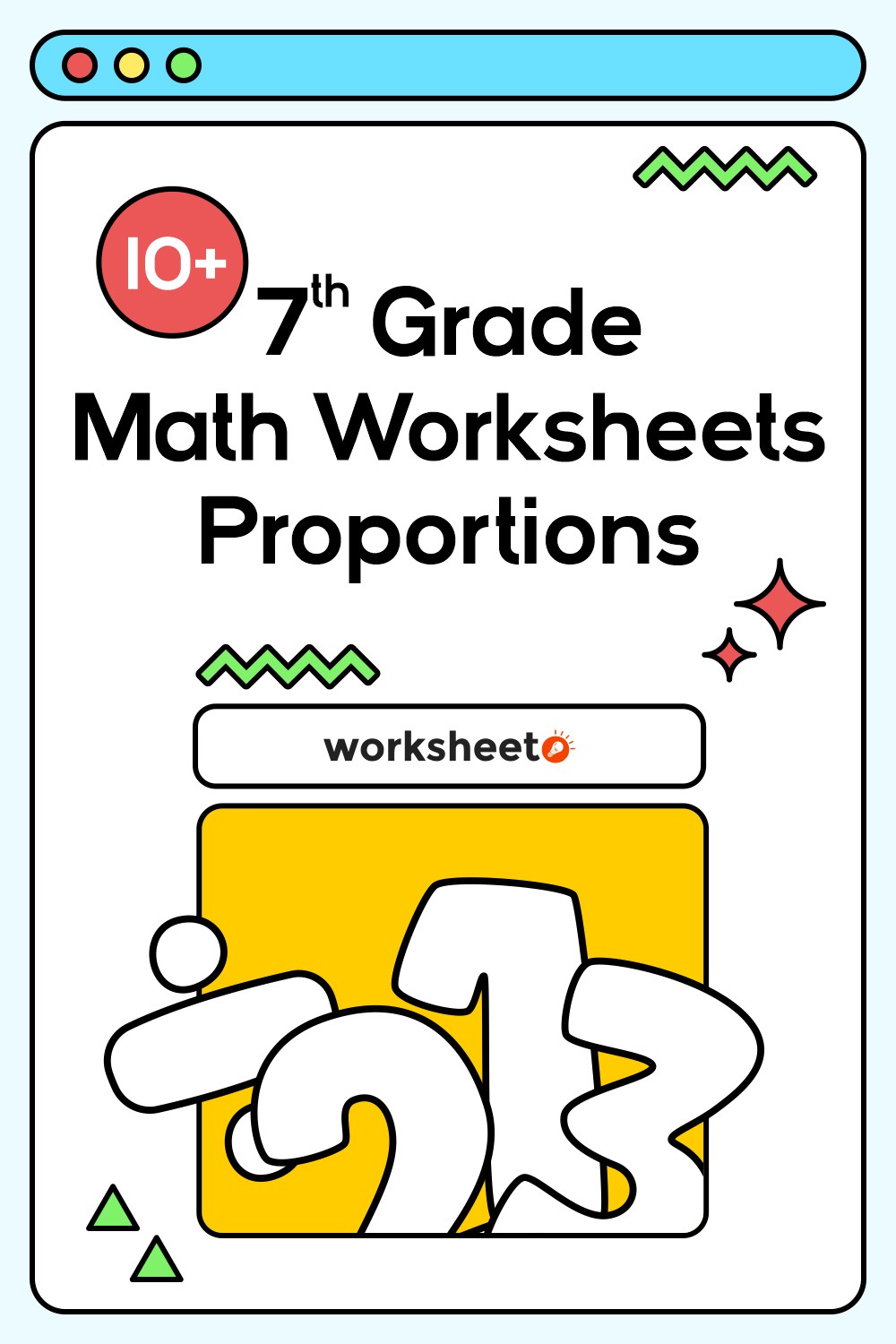

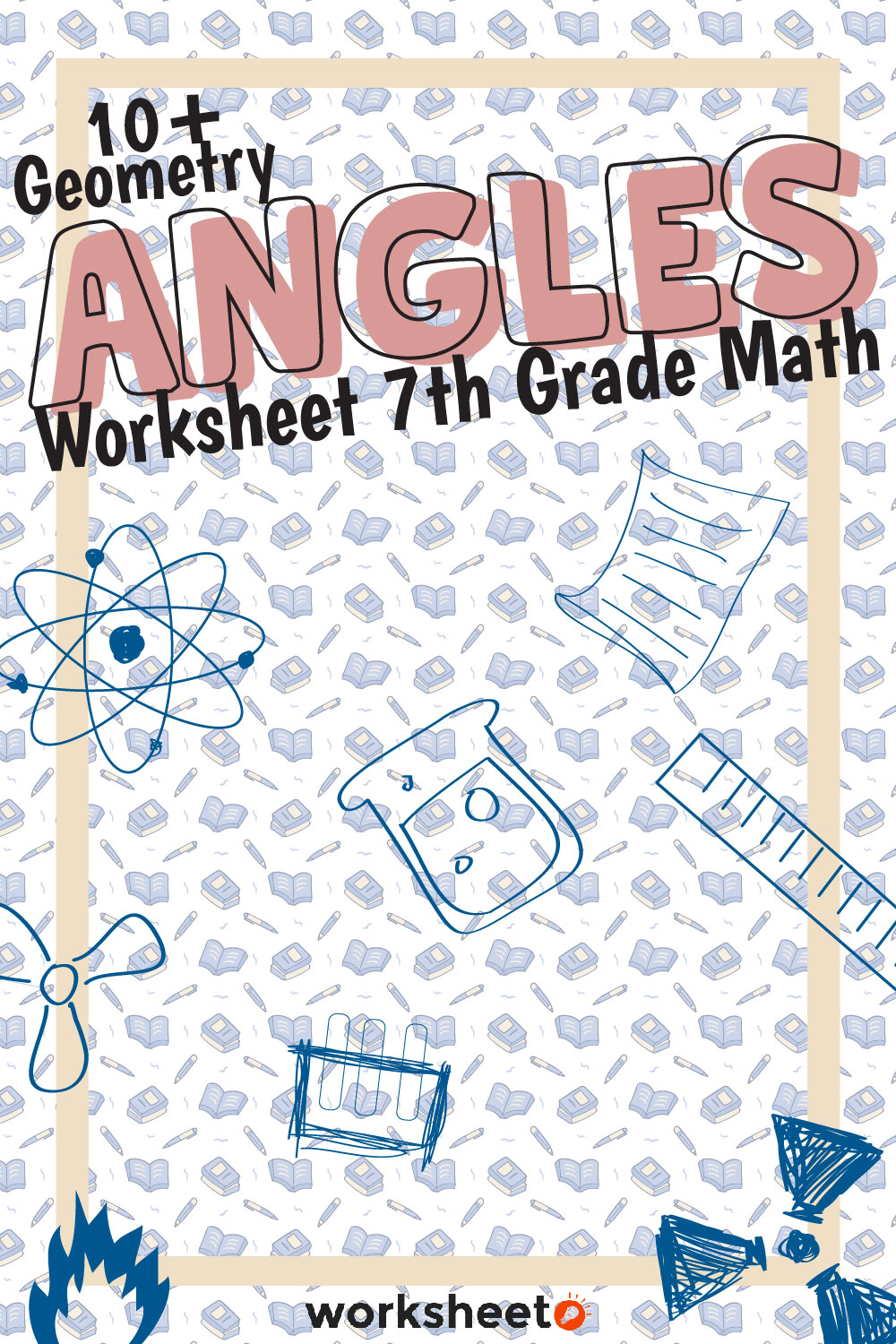
Comments